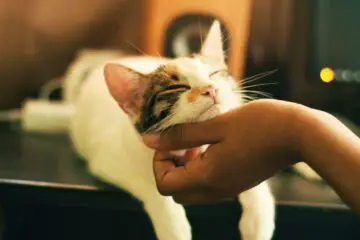Should I Get My Indoor Cat Vaccinated?
Yes, even indoor cats should be vaccinated. While they may not come into contact with other animals or sick people as often as outdoor cats, they can still contract diseases from contaminated food, water or clothing. Moreover, if you ever have to take your indoor cat to a boarding facility, they will likely require proof of vaccination. So what shots do cats need?
What Shots Do Cats Need?
There are three vaccines that are considered “core” for all cats: feline panleukopenia (also known as feline distemper), feline herpesvirus 1 (feline viral rhinotracheitis), and feline calicivirus. These three vaccinations are essential because they protect against diseases that are widespread, potentially fatal, and have no cure.
- Feline panleukopenia is a highly contagious viral disease that can affect cats of all ages. The virus attacks the lining of the gastrointestinal tract, which can lead to severe dehydration and even death.
- Feline herpesvirus 1 is another highly contagious virus that can cause a number of respiratory problems in cats, including rhinitis (runny nose) and pharyngitis (sore throat). It can also cause conjunctivitis (pink eye).
- Feline calicivirus is a virus that primarily affects the respiratory system, but can also cause ulcers in the mouth and on the tongue.
While all three of these diseases are serious, they are all preventable with a combination vaccine. There are also non-core vaccines that you may want to consider for your kitten.
What Are Some Non-Core Cat Vaccinations?
Of course, the answer to the question „What shots do cats need?” isn’t limited to just the core vaccinations. There are a few other shots that your cat may need depending on their lifestyle and risk factors.
For example, cats who go outside are at risk for contracting feline leukemia virus (FeLV), which is a virus that attacks the immune system and can lead to cancer. FeLV is most commonly spread through close contact with an infected cat, so indoor-only cats are at a lower risk.
Another virus that outdoor cats may be exposed to is rabies. Rabies is a fatal disease that can affect all mammals, including humans. While the risk of exposure to rabies is low, it’s still important to consider this vaccine if your cat goes outside.
Your cat’s veterinarian will be able to advise you on which vaccinations are right for your cat based on their lifestyle and risk factors. In general, it’s a good idea to keep up-to-date on all of your cat’s vaccinations to help them stay healthy and avoid diseases.
Cat Vaccination Schedule: How Often Cats Get Their Vaccines
The frequency of vaccination depends on the vaccine and the cat’s age, lifestyle, and health status. For example, kittens need to be vaccinated more frequently than adult cats because their immune systems are not fully developed. Kittens should receive a series of vaccinations starting at around 6-8 weeks of age, with booster shots given every 3-4 weeks until they are 16 weeks old.
After that, booster shots are typically given every 1-3 years, depending on the vaccine. Adult cats who are considered low-risk (indoor-only cats with no exposure to other cats) may only need booster shots every 3-5 years. Cats who go outside or have any other risk factors (such as exposure to other cats) may need booster shots more frequently. Your veterinarian will be able to advise you on the best vaccination schedule for your cat.
What Are the Risks of Not Vaccinating Your Cat?
Maybe answering the question „What shots do cats need?” is not enough to convince you. Remember, if your cat is not vaccinated, they are at risk of contracting a number of serious and potentially fatal diseases. Vaccinations are important not only for your cat’s health, but also for public health.
In addition, unvaccinated cats are more likely to spread diseases to other cats, even if they don’t show any signs of illness themselves. This is why it’s so important to keep up-to-date on your cat’s vaccinations, even if they seem healthy.
Vaccinations are a critical part of preventative healthcare for cats. They help protect against diseases that can be deadly, and keep your cat (and the people around them) healthy. Talk to your veterinarian about which vaccinations are right for your cat, and make sure to keep up-to-date on their shots.
How Much Can Vaccinating Your Cat Cost?
The cost of vaccinating your cat will depend on a number of factors, including the type of vaccine, the frequency of vaccination, and your geographic location. In general, vaccines are relatively affordable, and most cats only need booster shots every 1-3 years.
Some veterinarians may offer discounts for certain vaccinations, so it’s always a good idea to ask about pricing when you make your appointment. You may also be able to find affordable vaccination clinics in your area. These clinics typically offer a variety of vaccines for a set price, which can be a great way to save money on shots for your cat.
When Should You Not Vaccinate Your Cat?
In general, vaccines are safe for most cats. However, there are a few situations when they should not be given, including if the cat is pregnant or sick. If you’re not sure whether it’s safe to vaccinate your cat, talk to your veterinarian. You can also ask them „What shots do cats need in these circumstances?”.
What Are the Side Effects of Vaccination?
While vaccinations are generally safe, there is a small risk of side effects. The most common side effect is a mild reaction at the injection site, which may include redness, swelling, or soreness. Other potential side effects include fever, lethargy, and appetite loss. They’re typically mild and resolve on their own within a few days.
In rare cases, more serious side effects may occur. If you notice any severe reactions after your cat is vaccinated, please contact your veterinarian immediately.
What Else Can You Do to Keep Your Feline Friend Healthy?
In addition to vaccinations (which include non-core and core vaccines), there are a few other things you can do to help keep your cat healthy. For example, it’s critical to provide them with a balanced diet and plenty of fresh water. You should also keep their litter box clean and provide them with a safe place to exercise and play.
Regular check-ups with your veterinarian are also indispensable. These check-ups can help catch any potential health problems early on and keep your cat happy and healthy for years to come. A veterinary clinic can give you more detailed instructions on how to protect your cat from infectious diseases.











